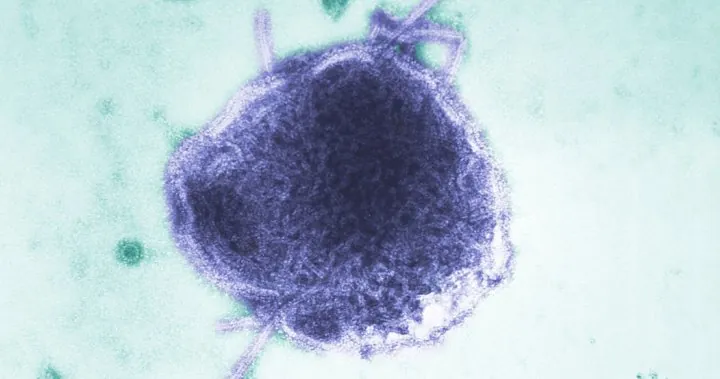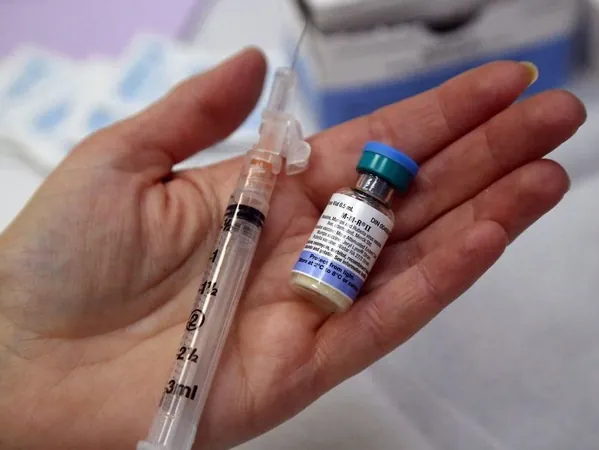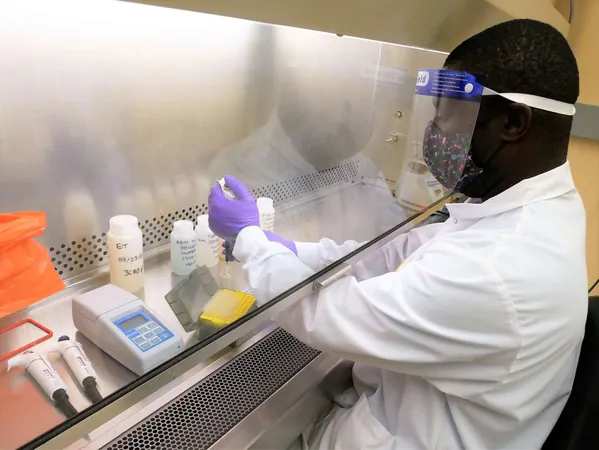
The Hidden Dangers of Measles: How It Can 'Erase' Your Immune Memory
2025-04-04
Author: Amelia
As measles cases spike around the globe, health experts are sounding alarms about a grave and lesser-known risk associated with the virus: immune amnesia. This highly contagious virus does more than just produce the classic red rash and fever; it has the chilling ability to obliterate the immune system's memory, leaving an individual susceptible to infections that they have previously fought off, including the flu, colds, and even diseases they were vaccinated against.
Health Canada has raised concerns that measles can lead to significant immune suppression, a phenomenon termed immune amnesia. This condition can elevate the risks of contracting various illnesses and potentially increase mortality rates for months or even years post-infection. Stephen J. Elledge, a professor of genetics and medicine at Harvard Medical School and a researcher in immune amnesia, explains, 'Immune amnesia destroys your immune system. The measles virus infects and kills the cells responsible for processing memories of past infections, effectively erasing that biological memory.'
Worryingly, a groundbreaking 2019 study co-authored by Elledge revealed that measles could erase up to 73% of an individual's protective immune memory. With the immune system brought to a nearly blank slate—akin to that of a newborn—it can take years for the body to rebuild and relearn how to fend off infections.
Measles holds the title of one of the most contagious viruses on the planet, boasting an R number (the average number of people one infected person will spread it to) of 12 to 18. In contrast, the original strain of COVID-19 had an R number of about 2 to 3, with even its most transmissible variants rarely exceeding an R of 10.
After being declared eradicated in Canada back in 1998, measles is now experiencing a resurgence, particularly in regions like Ontario, primarily due to declining vaccination rates. Alongside its well-known complications—including severe illness and death—immune amnesia presents another severe threat.
Our immune system operates through a complex memory system involving specialized cells known as B and T lymphocytes. When the body encounters pathogens, these cells remember them, allowing for a quicker and more effective response upon subsequent exposures. However, unlike other viruses that merely weaken the immune response, the measles virus systematically erases this memory through targeted attacks on plasma cells responsible for antibody production.
Elledge explained that while most infections leave some memory of previous illnesses, measles is unique: the immune system retains the memory of having battled measles itself, as survival against this virus is critical. 'If you don’t win that battle, you die,' he noted.
The implications of immune amnesia are particularly dire for infants, who are unvaccinated until about 12 months old, leaving them exceptionally vulnerable. Older adults are also at risk due to the natural decline in immune system functionality with age.
Research indicates that it typically takes two to three years for the immune system to fully restore its protective memory following a measles infection. During this period, the immune system may forget previous infections and the protections conferred by vaccinations.
For those who experience severe measles infections, consulting with healthcare providers about potential revaccination is paramount. Elledge stressed, 'This is not a typical virus; it is very serious.'
The essential takeaway is that the best defense against immune amnesia is preventing measles infection altogether, and the key to that is vaccination. The MMR (measles, mumps, and rubella) vaccine is highly effective against measles and the accompanying immune damage it can inflict. Experts underscore that vaccination goes beyond just short-term symptom prevention; it helps maintain the immune memory built over a lifetime.
The efficacy of the MMR shot is estimated to be 85 to 95% effective after one dose, administered at 12 or 15 months of age, while a second dose boosts effectiveness to nearly 100%, according to the Public Health Agency of Canada.
In this era of rising infections, reinforcing vaccination might be one of the most critical public health moves we can make to preserve our immune defenses. Don’t let measles erase your health—get vaccinated now!









 Brasil (PT)
Brasil (PT)
 Canada (EN)
Canada (EN)
 Chile (ES)
Chile (ES)
 Česko (CS)
Česko (CS)
 대한민국 (KO)
대한민국 (KO)
 España (ES)
España (ES)
 France (FR)
France (FR)
 Hong Kong (EN)
Hong Kong (EN)
 Italia (IT)
Italia (IT)
 日本 (JA)
日本 (JA)
 Magyarország (HU)
Magyarország (HU)
 Norge (NO)
Norge (NO)
 Polska (PL)
Polska (PL)
 Schweiz (DE)
Schweiz (DE)
 Singapore (EN)
Singapore (EN)
 Sverige (SV)
Sverige (SV)
 Suomi (FI)
Suomi (FI)
 Türkiye (TR)
Türkiye (TR)
 الإمارات العربية المتحدة (AR)
الإمارات العربية المتحدة (AR)